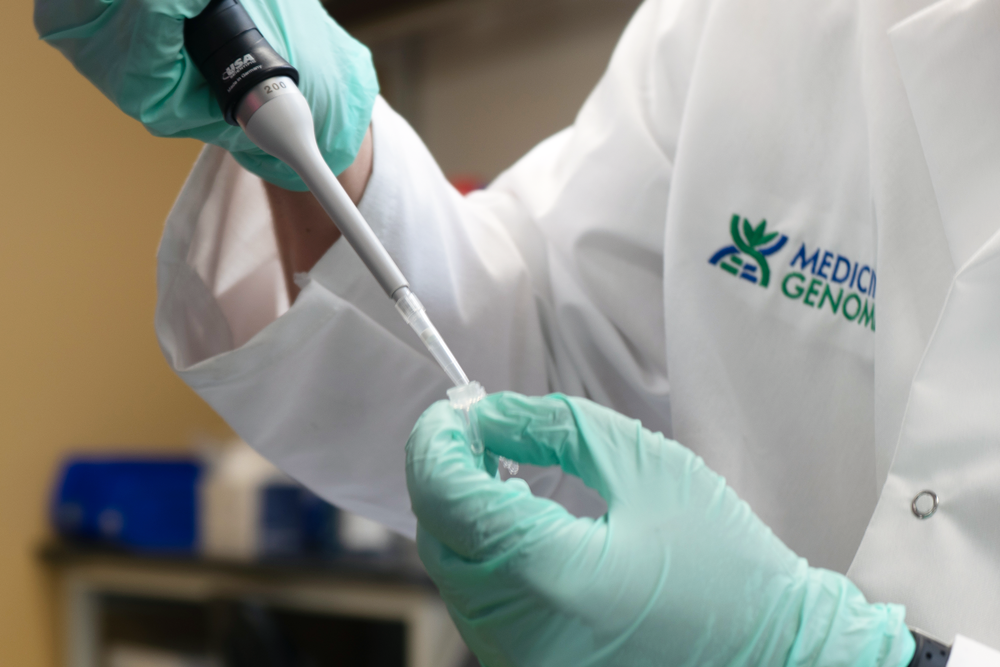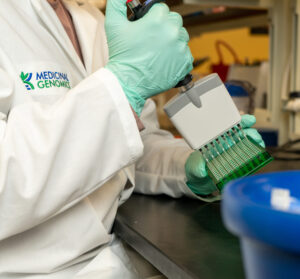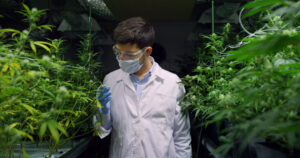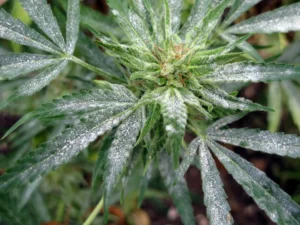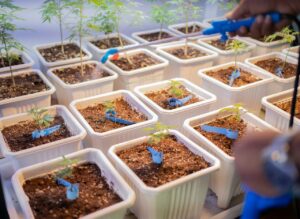Quantitative Polymerase Chain Reaction (qPCR) testing is a powerful tool that commercial cannabis cultivators can use to monitor and improve the health and quality of their crops. In the increasingly competitive cannabis industry, innovative commercial cultivators who adopt emerging technologies and methodologies will succeed. In this blog, we’ll explore how commercial cannabis cultivators are using qPCR testing in their operations.
What is qPCR?
qPCR is a laboratory technique that amplifies and quantifies DNA sequences. qPCR assays contain primers and probes that target specific DNA sequences that are unique to pathogens, genetic traits or other organisms of interest. The assay then amplifies the DNA making copies at an exponential rate. Unlike traditional PCR, which only amplifies DNA, qPCR assays can measure the amount of DNA present, which helps growers determine pathogen infection levels and the strength of certain genetic traits.
Benefits of qPCR Testing in Cannabis Cultivation

1. Early Pathogen Detection
The most common application of qPCR testing in commercial cannabis cultivation is early pathogen detection. If not addressed promptly, fungi, bacteria, viruses, and viroids can spread rapidly throughout indoor cultivation facilities and devastate crops. When qPCR testing is used as part of a comprehensive integrated pest management (IPM) program, growers can identify these pathogens at low levels, often before visible symptoms appear. This allows for timely intervention, reducing crop losses and maintaining plant health.
THC (formerly Fluresh) operates a 120,000 sq/ft mixed indoor-outdoor greenhouse cultivation facility in Michigan that produces 1,000 lbs of dry flower per week. Since they started using qPCR testing to screen mother plants, seedlings, and clones for hop latent viroid (HLVd), they have mostly eliminated crop losses to HLVd! Download the Application Note.
2. Genetic Screening
qPCR testing can also be used to identify genetic traits within the plant’s DNA well before the trait is expressed. For example, the FemINDICAtor qPCR Plant Gender Detection Assay looks for the presence of a y-chromosome. If it is detected, you know you have a male plant, and it can be culled before it ever makes it out of the seedling tray.
This same concept can be used to screen for genetic markers that are associated with specific cannabinoid profiles, physical traits, and pathogen resistance. For example, Oregon CBD analyzed genomic data from a population of autoflower plants to identify a genetic marker for the autoflowering trait. They then designed a qPCR assay for the trait and used it to screen seedlings in their breeding project. This process accelerated their breeding project and and saved valuable time and space. Download the case study
3. Environmental Monitoring
The growing environment plays a crucial role in the health and productivity of cannabis plants. qPCR testing can monitor environmental factors such as soil microbiome composition and water quality. By analyzing these elements, cultivators can make informed decisions about soil amendments, irrigation practices, and other aspects of crop management, leading to optimized growing conditions and improved yields.
4. Ensuring Regulatory Compliance
A microbial failure can be a devastating financial hit for commercial cannabis growers. In some cases, regulators allow growers to extract cannabinoids from the failed batch, and retest. In other states, growers have to scrap the entire batch. Commercial cannabis cultivators who adopt qPCR testing can use the same technology that compliance testing labs use to screen their plants throughout their lifecycle and post harvest. This not only ensures product safety but also builds consumer trust and brand reputation.
Implementing qPCR Testing in Cannabis Cultivation
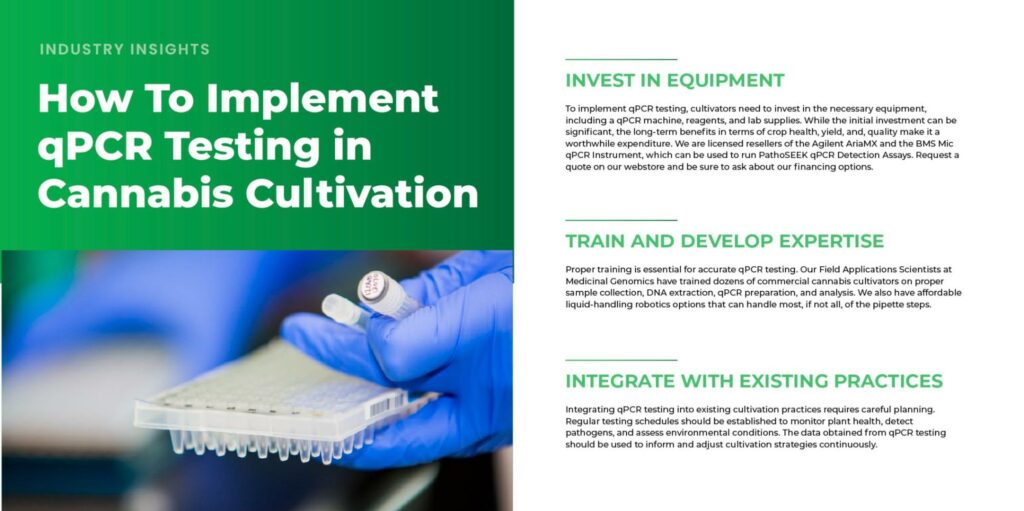
Investing in Equipment
To implement qPCR testing, cultivators need to invest in the necessary equipment, including a qPCR machine, reagents, and lab supplies. While the initial investment can be significant, the long-term benefits in terms of crop health, yield, and, quality make it a worthwhile expenditure. We are licensed resellers of the Agilent AriaMX and the BMS Mic qPCR Instrument, which can be used to run PathoSEEK qPCR Detection Assays. Request a quote on our webstore and be sure to ask about our financing options.
Training and Expertise
Proper training is essential for accurate qPCR testing. Our Field Applications Scientists at Medicinal Genomics have trained dozens of commercial cannabis cultivators on proper sample collection, DNA extraction, qPCR preparation, and analysis. We also have affordable liquid-handling robotics options that can handle most, if not all, of the pipette steps.
Integrating with Existing Practices
Integrating qPCR testing into existing cultivation practices requires careful planning. Regular testing schedules should be established to monitor plant health, detect pathogens, and assess environmental conditions. The data obtained from qPCR testing should be used to inform and adjust cultivation strategies continuously.
Get Started with qPCR Testing
qPCR testing represents a significant advancement in cannabis cultivation, offering numerous benefits that can enhance crop health, quality, and yield. By investing in this technology and integrating it into their practices, commercial cannabis cultivators can stay ahead in a competitive market, ensuring their products meet the highest standards of quality and safety. Embracing qPCR testing is not just about keeping up with industry trends; it’s about leading the way toward a more sustainable and successful future in cannabis cultivation.

